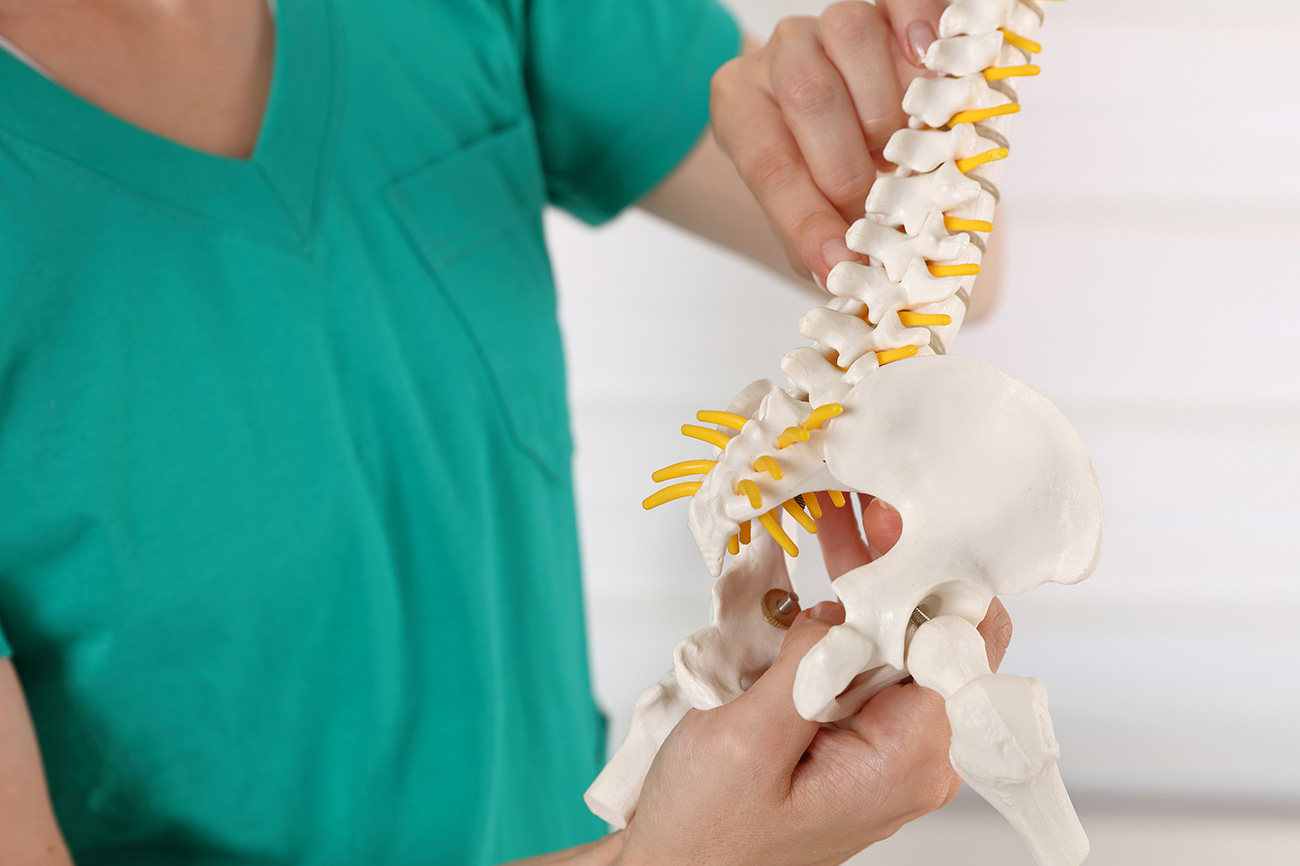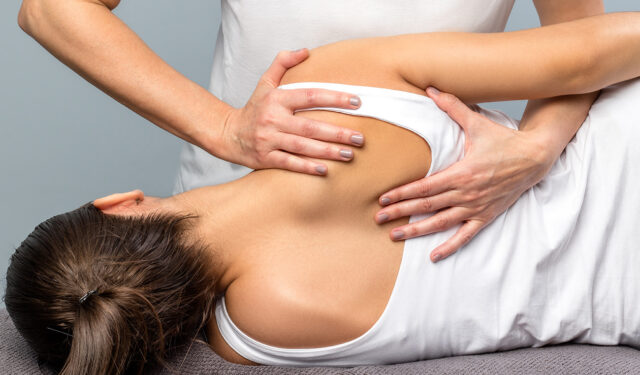Warning Signs and Symptoms
Unfortunately, you can’t feel your bones getting weaker. Many people only discover they have osteoporosis after a fracture or when they have an x-ray at our clinic.
In serious cases, bones can break from something as minor as a cough or a small twist.
Common signs include:
Who Is at Risk?
Anyone can develop osteoporosis, but certain factors increase your chances:
Biological Factors
Being female and/or over 50
Early menopause or low hormone levels
Family history of osteoporosis
Small, thin body frame
Lifestyle & Nutrition
Low calcium and vitamin D intake
Lack of exercise
Smoking and heavy alcohol use
High salt, caffeine, and fizzy drink consumption
Medical Causes
Long-term use of corticosteroids or anticonvulsants
Conditions like anorexia, Crohn’s, celiac disease, or rheumatoid arthritis
Common Fractures Caused by Osteoporosis
Hip Fractures
These are among the most serious consequences.
75% occur in women over 50
20–24% of people may die within a year of the fracture
Many lose independence and need long-term care
Vertebral (Spinal) Fractures
Can cause back pain, stooping, and breathing issues
Often go unnoticed until discovered on x-rays
A prior spinal fracture doubles the risk of another fracture
At Isis Chiropractic Centres, spinal compression fractures are one of the most common issues we see in osteoporotic patients.
How Is Osteoporosis Diagnosed?
The best way to check your bone strength is with a Bone Mineral Density (BMD) scan, usually done using a DEXA scan. It’s:
Painless
Quick
Non-invasive
This scan compares your bone density to that of a healthy young adult and gives a T-score, which helps predict fracture risk.
We offer monthly Screenetics health screenings in all Isis clinics, so it’s easy to get tested.
Osteoporosis Treatment Options
While there’s no cure, many treatments can reduce the risk of fractures and help you live more comfortably.
Medications
Bisphosphonates (e.g. Fosamax, Actonel): Slow bone loss
SERMs (e.g. Evista): Mimic estrogen to protect bone
Calcium & Vitamin D supplements
Calcitonin (nasal spray or injection): Offers pain relief after spinal fractures
HRT (Hormone Replacement Therapy): Used less often now but still effective in some cases
Chiropractic Care for Osteoporosis
We do not treat osteoporosis itself, but we can help manage pain and posture issues related to spinal fractures. Our chiropractors:
Identify signs of osteoporosis on x-rays
Refer patients for further testing and treatment
Provide gentle, customized adjustments
Offer advice to reduce fracture risk and improve quality of life
We also offer in-house rehabilitation programmes at our Northampton and Milton Keynes clinics, tailored to your needs.
Prevention: What You Can Do
It’s never too late—or too early—to improve your bone health.
Stay Active
Weight-bearing exercises like walking, dancing, or Tai Chi are excellent
Strength training helps build bone density
Activities like gardening or golf also keep you moving and balanced
We’ll help you find an exercise plan that’s fun, safe, and sustainable for your lifestyle.
Eat for Bone Strength
Focus on calcium-rich foods: leafy greens, dairy, fish, and nuts
Get plenty of vitamin D from food and sunlight
Cut back on salt, caffeine, fizzy drinks, and alcohol
We also offer nutritional support including Mega Greens plus MSM and Synoflex to support bone and joint health.
Start Early, Stay Strong
Osteoporosis starts silently. But with the right care and habits, it doesn’t have to stop you from living a full, active life.
Encourage your children to eat well and stay active to build strong bones early. Remind your parents and older loved ones that it’s never too late to strengthen their bones.
Let’s Get You Started
At Isis Chiropractic Clinics, we’re here to support your health at every stage. Whether you need a screening, treatment, or just advice—we’re ready to help.
Contact us today to book your consultation or learn more about our health screenings.

